"Being in this band is like home. I enjoy being a Doobie Brother": 50 years down the tracks, the Doobie Brothers remain friends - even when they argue
With vocalist Michael McDonald on board again and a new album, the Doobie Brothers still have what it takes
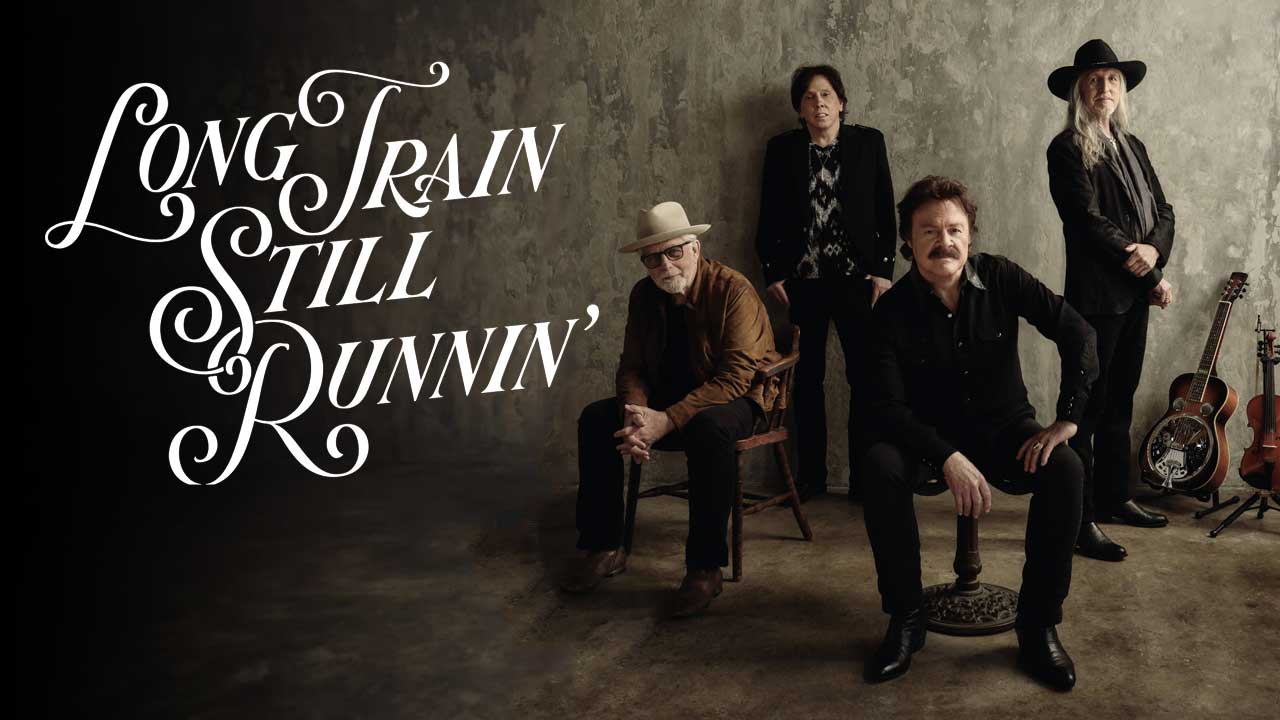
Apart from a five-year hiatus during the mid-80s, The Doobie Brothers have been rockin’ on down the highway for more than half a century. With 10 US Top 10 hits to their name, including two No.1s, the multiple-Grammy-winning Californian band also made some of the most popular albums of the 70s. Their 1976 greatest hits collection, Best Of The Doobies, has achieved diamond status, selling 10 million copies in the United States alone.
Yet as staples of an FM Radio scene that critics joyfully eviscerated as the epitome of blandness, probably few could identify a member of the Doobies – except perhaps for keyboard player and vocalist Michael McDonald, who also carved a hugely successful R&B/crossover career of his own – should they pass them on the street.
“When I meet people on flights and they ask whether I’m in a band, I tell them the songs that we’re known for. They recognise those, but not me,” co-founding guitarist Patrick Simmons told Classic Rock back in 2010, adding: “I kinda like that.”
Their hit list speaks for itself. Peppered with immaculate vocal harmonies, What A Fool Believes, Listen To The Music, Black Water, Long Train Runnin’, China Grove and Takin’ It To The Streets all trod the lines between rock, blues and soul. The Doobies refused to become stuck in one particular genre, but the first verse and chorus of just about any of their tracks was all it took for recognition.
Debuting on the 1976 album Takin’ It To The Streets (their sixth studio LP), Michael McDonald injected the melody X-factor that would propel the Doobies to new heights, his immaculate soulful voice complementing a more keyboard-friendly accessibility. Although McDonald wasn’t there every step of the way, except for that aforementioned 1980s break the band never stopped touring and recording.
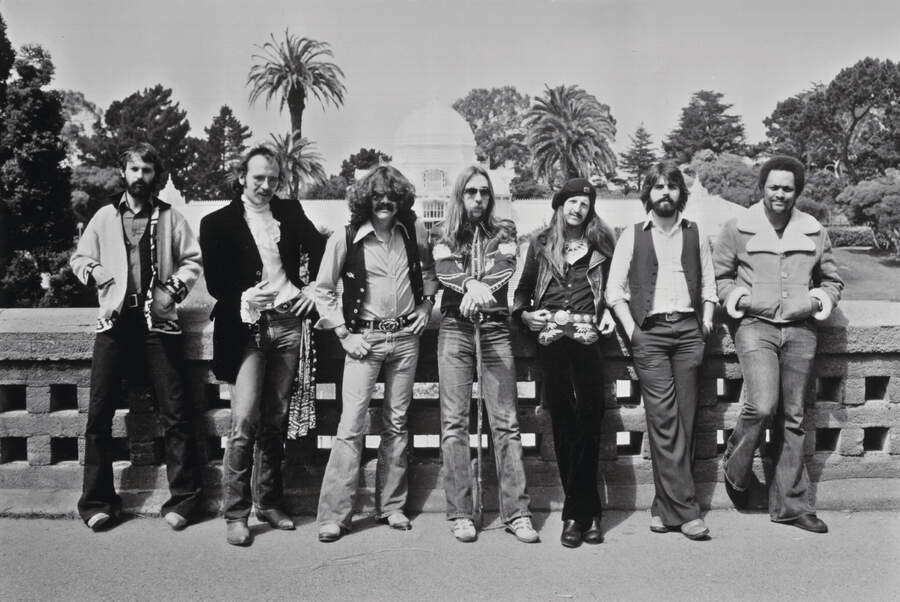
Now into his fifth spell on board, McDonald rejoined in 2019 for the group’s 50th-anniversary tour, later cancelled due to lockdown, too late to appear on Liberté, which was released in 2021 and featured Little Feat’s Bill Payne on keyboards.
Their first album of new music in 11 years, Liberté was not only made with an unfamiliar face at the studio console, it was also a fresh method of working for the Doobies, whose first nine albums had been overseen by the estimable Ted Templeman.
Sign up below to get the latest from Classic Rock, plus exclusive special offers, direct to your inbox!
The newcomer was John Shanks, a versatile, Grammy-winning producer and songwriter with ties to Bon Jovi, Stevie Nicks, Van Halen, Carlos Santana, Bonnie Raitt, Joe Cocker and even Take That and Westlife. At the risk of portraying the New Yorker as a know-it-all, he also played guitars, bass and various keyboards and did drum programming on Liberté, as well as co-writing all 12 of its songs.
Despite the album being only a modest success, and failing to make the US Billboard Hot 100, so fired up were the Doobies of its mode of creation that Shanks was enthusiastically rehired for the follow-up. Walk This Road repeats the formula, with Shanks not only dominating the writing credits with all but one of its songs, but also bringing in the outside talent who appeared on it, including bassists Pino Palladino and Bob Glaub, percussionist Victor Indrizzo and backing singer John Cowan.
“John Shanks has introduced a completely new writing style for this band,” enthuses Tom Johnston, the long-serving, co-founding guitarist now into a fourth spell of his own. As before, each band member submitted material, and trusted Shanks to add the finishing touches.
“Upstairs at John’s studio there was a writing room. You’d come in the door, grab a coffee, show your songs and then hear what the others had brought in,” Johnston remembers of the process.
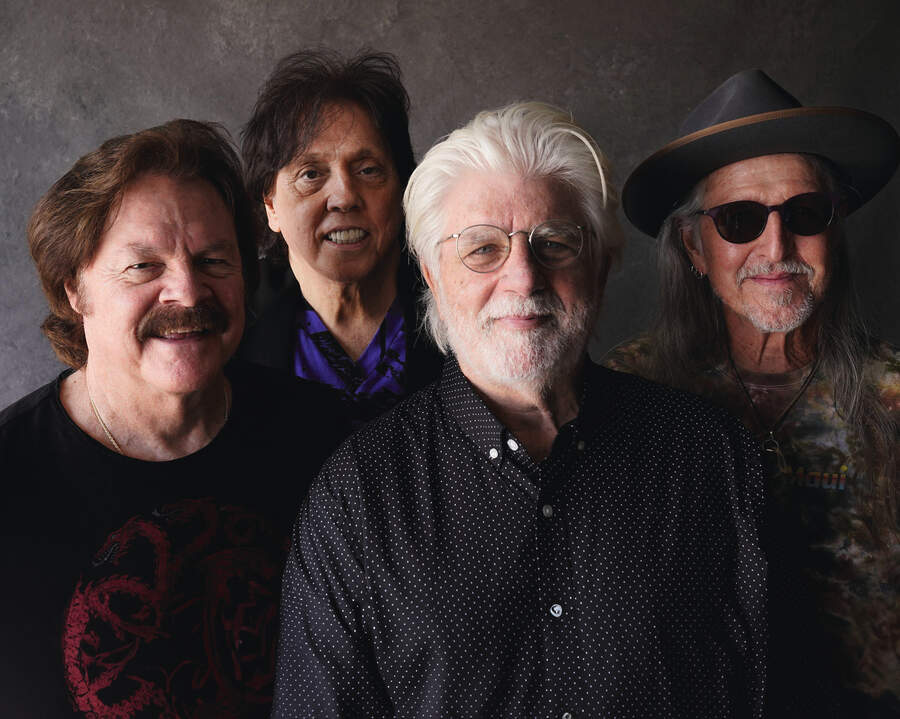
So far so traditional. But in another twist, encouraged by Shanks, this time writing credits didn’t always determine the singer, and everybody sang on each other’s songs.
“It’s an interesting way to work, and it’s fast – not that we were in a hurry,” reflects Johnston. “John is an excellent songwriter and I really enjoyed working with him. I hope we can do more in the future,” Michael McDonald says of a first-time collaboration with Shanks. “Besides being a consummate produce,r he’s very good at overseeing a project from beginning to end, and he also brings many skills as a guitar player and a musician. John has the type of studio that most musicians can only dream of. He had keyboards I’ve never seen before.”
Walk This Road, the band’s sixteenth studio record, is exactly the album fans would wish for from a band like the Doobies at such an advanced stage in their career. With all three principal vocalists – McDonald, Simmons and Johnston – at the mic, its tracks come on like long-lost old friends, dispensing a winning mix of fun, superlative musical precision and the kind of autumn-years wisdom that a grandfather might bestow.
Its stirring opening number and title track, a thinly veiled condemnation of the current US government, sets a tone of maturity, common sense and, above all, decency for what follows. Although McDonald (who wrote the song with Shanks) is too discreet to reveal its inspiration by name, his frustration is all too evident.
“I think it’s important that all of us stand up and say our piece,” McDonald says. “Here in the US these are perilous times, I’m afraid. We are staring down a dark channel that could lead to totalitarianism. We’ve got a guy who doesn’t want to be President Of The Unites States as much as he wants to be one of the points of light – the whole axis of everything. He wants the world. We have to be very careful of that, and we should speak out against it while we still can. I have no doubt that should they get their own way, this administration would shut down the press completely.”
The presence on the same song of Mavis Staples, celebrated R&B and gospel singer and political activist from Chicago who is considered a national treasure in her homeland, only accentuates its strong, positive message. The sprightly 85-year-old, who once turned down a proposal of marriage from Bob Dylan, is as close of a voice of the nation’s scruples as it could get.
“I’ve known Mavis for quite a few years,” McDonald reveals. “She is, after all, the First Lady of socially conscious gospel music. Mavis has always been at the forefront of what we were just discussing – speaking out and saying what needs to be said. For us, going to her for that particular song was kind of inevitable. We were extremely honoured that she would agree.”
In contrast to the boundlessly spiritual Staples, while two of the album’s songs namecheck the Lord (Angels Of Mercy) and God (Speed Of Pain) McDonald is slightly cagey when asked whether or not the Doobies are a religious group.
“I can’t speak for the rest of the band, only myself,” he considers for a moment. “I’ve no doubt that there’s a higher consciousness – a God, if you will – that has allowed me to do things in my life that I could not have accomplished alone. On more than one occasion, he has saved me from myself. I don’t need God to have picture ID or an address to know that He exists. I have a very personal relationship with God and there isn’t a day that goes by that I don’t look for Him to guide me.”
It’s the type of talk you’d maybe expect from an easy-going bunch of guys nearing the end of the road rather than the young bucks that named themselves as a gang of cannabis smokers (a ‘doobie’ being US slang for a joint), and the album is full of lyrics that look back over the past decades and question where the writer – and also maybe the listener – went wrong in life. But it’s also not what you would call ‘preachy’. The poignant Learn To Let Go, which began as an idea by Shanks and was expanded with McDonald’s help, is a good example.
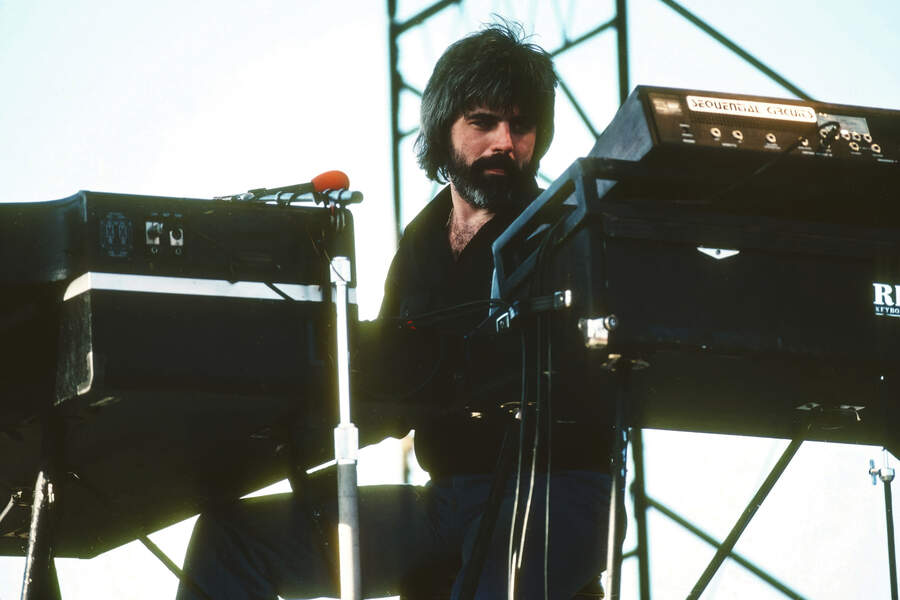
“The concept behind Learn To Let Go is one of the hardest in life: moving on,” McDonald explains. “People want to take possession of everything they encounter, and to control it, when in fact we are not in control of anything. We placed that thought within the context of a love affair that has run its course.”
Sung with typical emotional gusto by McDonald, the delightful Learn To Let Go is a showcase for one of the best blue-eyed soul singers in the business, a flexing of the larynx that propelled Yah Mo Be There (a 1983 duet with James Ingram), Christopher Cross’s Ride Like The Wind and his own Sweet Freedom and I Keep Forgettin’ (Every Time You’re Near) to the top reaches of international charts.
Meanwhile, featuring the line: ‘If I could say I’m sorry would it do any good’, State Of Grace is another notable, gravitas-heavy moment.
“That one was written by Pat [Simmons] with John [Shanks], and I’m sure it did him good to get it off his chest,” Johnston points out.
“It’s all a part of that theme we just spoke about,” McDonald elaborates. “It’s important that we remember to accept how small we are in the context of the universe. I’ve a friend who says: ‘My ego is not my amigo’ and it always makes me smile.”
Does it feel good to share such wisdom?
“No, and I’ll tell you why,” Johnston fires back. “I’ve never thought that way, I don’t try to be a messenger. My goal is to write good songs.”
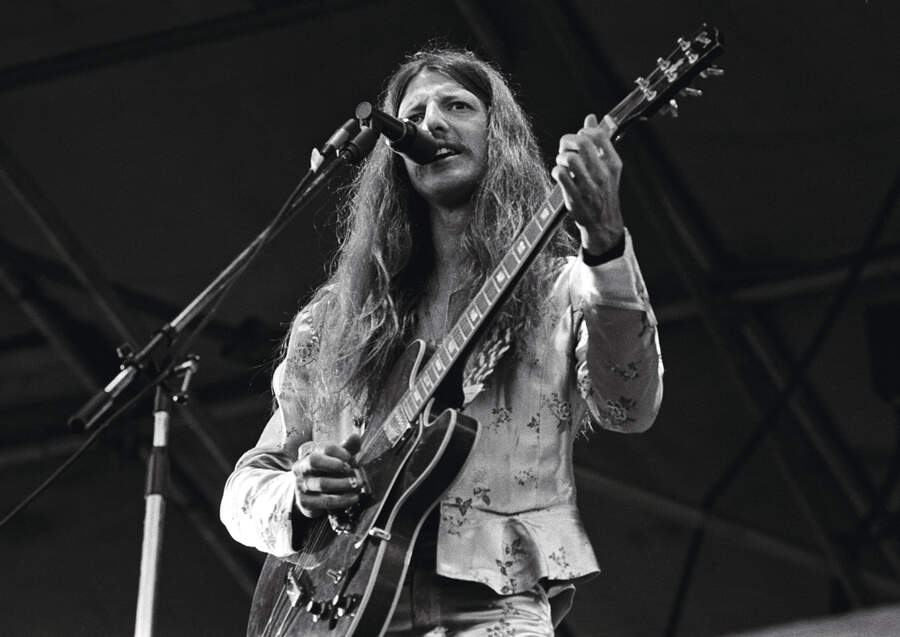
The Doobies once again hit the bullseye with Walk This Road. An album of theirs would be incomplete without a fistful of radio-friendly melodic hard rock anthems, and along with Angels & Mercy, complete with the fist-in-the-air lyric ‘Getting lost in rock’n’roll heaven’, Here To Stay – another appropriate title – fits the bill.
“I wrote that one several years ago. It’s about a friend I lost, a very sad tale,” Johnston confides. “The lyrics were altered a little when I sat down with John [Shanks], but the original message is still there.”
Further on, the album takes a diversion into Cajun-flavoured sounds – we’re talking about New Orleans and The Kind That Last – that keeps things fresh.
“I like having those songs on the record,” Johnston says proudly. “It’s good to do shit that you didn’t do last time. Each record should have its own personality. New Orleans was one of those songs that started out in one direction and we took it a complete hundred and eighty degrees. It has kind of a Stones-y feel with a New Orleans vibe.”
“I had a ton of fun making this record,” McDonald continues. “I enjoyed playing on everyone else’s songs as much as my own. New Orleans allowed me to play the accordion. I don’t normally take a step out to take a solo on a synthesiser, but I did that on Lahaina. Normally I’d leave that to someone that knew what they were doing, but here it felt completely natural.
“And on the next record, should we do another one, we’ve promised ourselves to sit on the floor together and play live,” he continues. “In the old days we’d talk about ‘beating the demo’, making a song sound better in the studio, but the process has changed so much it would be fun to take things back to the basics of it all. I miss sitting on the floor and letting the song invent itself through our hands and brains.”
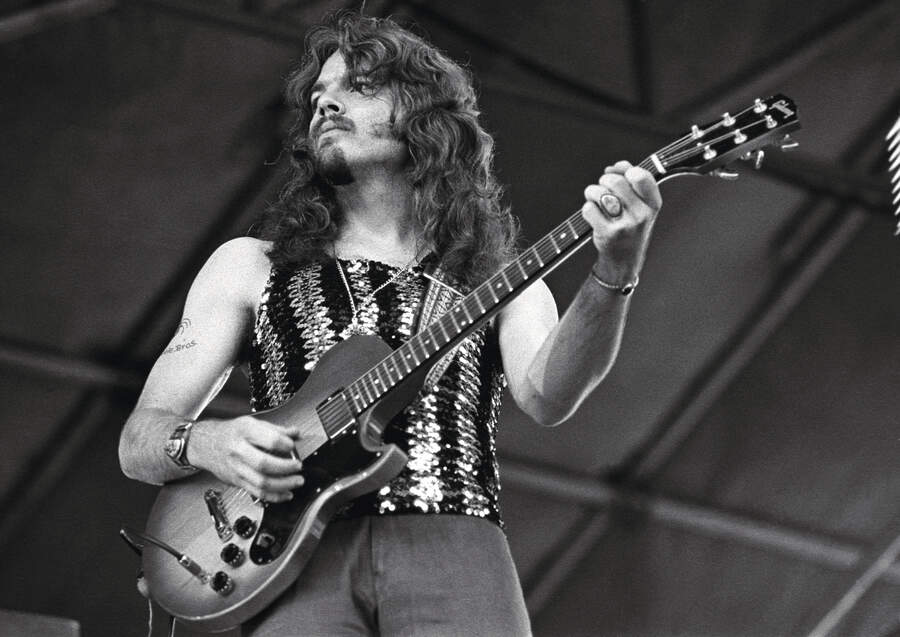
The song referred to by McDonald, Lahaina, was put forward by Pat Simmons and is named after a historic town in Maui in Hawaii. It features Mick Fleetwood on drums, and laments the wildfires in 2023 which cost the former Fleetwood Mac drummer his restaurant on Front Street. Simmons and Fleetwood both reside on the island.
“It’s a situation that should never have happened,” Simmons states in the album biography/press release. “When we wrote it, I was desperate to contribute something after the fires because I just felt so helpless.”
Long-term fans of the band will be celebrating this latest return of McDonald, whose presence always elevates them to another level.
“It always feels great to go back to the Doobies. Being in this band is like no other experience I’ve had in music,” he says. “There’s something very comfortable about it for me, which is I’ve spent such a chunk of time here. More than anything – even when we’ve had differences – we managed to remain friends. Any disagreements never took away our capacity to like each other. Being in this band is like home. I enjoy being a Doobie Brother.”
Tom Johnston recognises what McDonald adds to the band when he comes back from doing his own thing. “He brings his own style – his keyboards, his vocals and his writing. With Michael in the band it’s a little bit different to the guitar-driven thing [before he joined], but it’s just as valid. People loving having him up there.”
Along with his bandmates, McDonald was inducted to the Rock And Roll Hall Of Fame in 2020. However, with the world in lockdown at the time due to covid, the honour was received via the internet from the group’s own homes.
“It’s a shame it was done remotely, in some ways at least, but I wasn’t heartbroken it happened that way,” McDonald says. “I don’t like those huge events. They’re an ordeal – fly in, show up, and join in the huge jam session at the end. That didn’t really appeal to me, but it sure meant a lot to be inducted, as we do like to think of ourselves as a rock band. We have covered many different genres but it was a rock band even before I joined. We were all very flattered.”
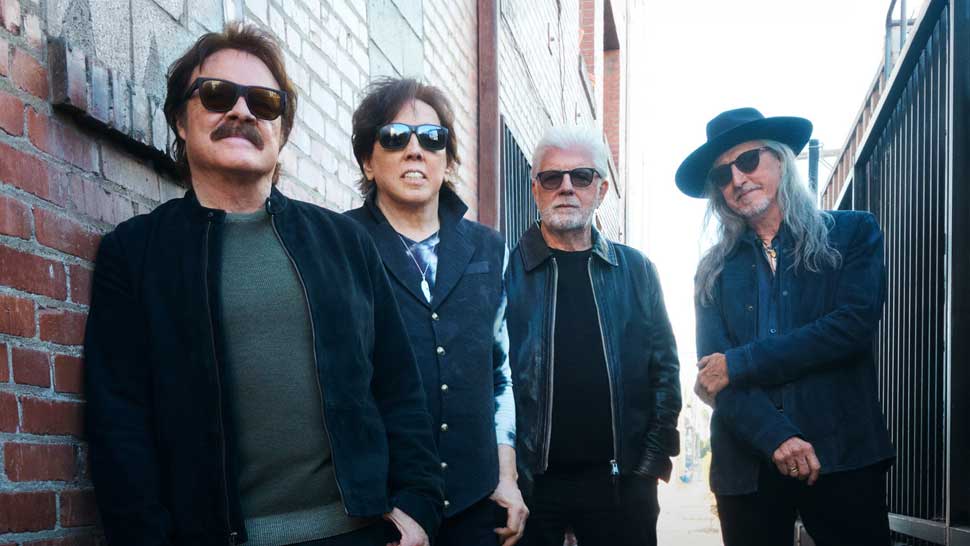
Aware of the negativity felt by some towards the Hall Of Fame, Johnston prefers to think of the organisation in two halves.
“The guys that I consider important – Bo Diddley, James Brown, Little Richard, BB King, Eric Clapton and Cream – are in there, and to me that validates the Hall Of Fame,” he reasons. “As for the newer version, I just let everyone else worry about the validity of that.”
When asked if he might be offended by Classic Rock describing Walk This Road as music from a better time, McDonald smirks good-naturedly and says: “I think it sounds complimentary to me.”
The implication is that the Doobies are more to do with the past than with the present.
“There’s a compliment in there somewhere,” he shrugs. “But I am so impressed by the number of young artists out there who are so much better than we were [at their age]. We were a pretty loose bunch looking out for a way to avoid growing up; they put in more effort and detail than we did.”
And yet in some ways, in 2025 the Doobie Brothers are bigger than they’ve ever been. On their 2017 visit to the UK, alongside Steely Dan, they co-headlined London’s O2 Arena. More recently, as part of a five-date tour that began on July 11, they topped the bill at the same huge venue. Quite an achievement for a band considered as American as apple pie, and maybe a little faceless too.
“Nobody is more astonished about any of this than we are – or more grateful,” McDonald admits of the Doobies’ dogged longevity. “In the States, some of our audiences have been coming to see us for more than fifty years. None of us thought we’d still be doing this in this size of venues after all of these years. I never thought I would be taking the stage in my sixties or my seventies. But here we are, and it’s wonderful.”
Walk This Road is out now via Rhino.

Dave Ling was a co-founder of Classic Rock magazine. His words have appeared in a variety of music publications, including RAW, Kerrang!, Metal Hammer, Prog, Rock Candy, Fireworks and Sounds. Dave’s life was shaped in 1974 through the purchase of a copy of Sweet’s album ‘Sweet Fanny Adams’, along with early gig experiences from Status Quo, Rush, Iron Maiden, AC/DC, Yes and Queen. As a lifelong season ticket holder of Crystal Palace FC, he is completely incapable of uttering the word ‘Br***ton’.
You must confirm your public display name before commenting
Please logout and then login again, you will then be prompted to enter your display name.

